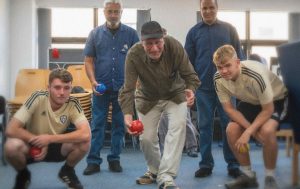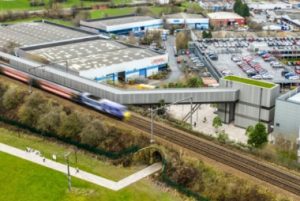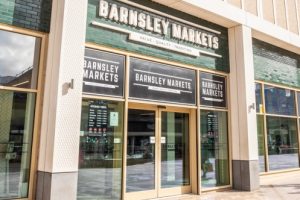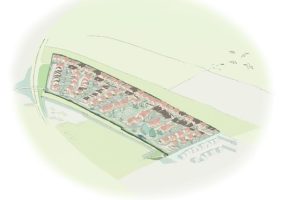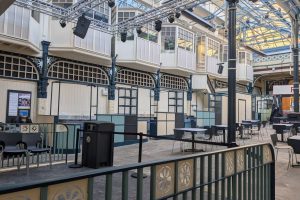Fairtrade is a growing industry

FEW ethical movements have achieved the recognition, international status and success of Fairtrade.
From the launch of the first label – Max Havelar – in Holland in 1988, the initiative, quickly moved from concept to legitimate retail label that positively improves the livelihoods of coffee, tea, cotton and banana farmers across the world.
Its premise is simple. Producers must be paid a minimum price to cover the cost of sustainable production plus an extra premium to be invested in community development projects for Fairtrade status to be granted.
In the UK, high profile backing from politicians including Tony Blair and the tireless work of a handful of hardened corporate advocates has seen the number of Fairtrade products available increase year-on-year.

Coffee is the next big seller with sales rising 24% over the past year to more than £117m. Sales of items made with Fairtrade certified cotton increased in the same period from around £500,000 to just under £9.5m.
The number of shoppers of opting for Fairtrade tea continues apace with sales rising 24% to around £30m. According to the Fairtrade Foundation Fairtrade tea should account for a tenth of the tea sold in the UK by the end of the year.
Much of this success has been driven by brand awareness with more than half of UK shoppers now recognising the familiar black, green and blue Fairtrade Foundation symbol. It's no surprise then that a growing number of the country's biggest brands are waking up to its selling power.
Sugar king Tate & Lyle is the latest to endorse ethical buying having announced that all granulated white cane sugar sold in UK shops will be Fairtrade accredited with the rest of its retail range coming on line by the end of 2009.
Its decision adds £60m to the value of Fairtrade sugar inside a year and is being hailed as one of the biggest ever Fairtrade switches by a UK firm. If the success demonstrated by retailers such as Sainsburys, Co-op, Waitrose is achieved, Tate & Lyle looks set to be delighted with its decision.
Sainsbury's decision to only stock Fairtrade bananas for example has almost tripled the value of its Fairtrade sales.
Seven million people – farmers, workers and their families – benefit from the international Fairtrade system. The UK market is the most dynamic Fairtrade market in the world. Today more than 3,000 Fairtrade certified products available.
According to Harriet Lamb, executive director of the foundation, the increase in sales of Fairtrade goods reflects the public's growing appetite for all things Fairtrade.
“After years of chipping away, Fairtrade supporters are finally beginning to make some significant impression on the way companies trade,” she says.
“Increasing numbers of people in the UK are buying Fairtrade goods as a practical action everyone can take to tackle poverty in the developing world.
“And that's good news for the seven million people, growers and their families around the world who benefit from the Fairtrade system as well as the thousands of people in this country who have been campaigning since the early 90s to make trade fairer.”
It's a track record that the foundation, launched in 1992 by CAFOD, Christian Aid, New Consumer, Oxfam, Traidcraft and the World Development Movement, can be proud of. Since 2005, the number of African producer organisations selling to the UK market has almost doubled from 81 to 152, each organisation representing thousands of farmers and workers.
The words of Silver Kasoro-Atwoki, tea grower and shareholder in the Mabale Growers Tea Factory in Uganda, bear testament to the label's success.
“For the past 15 years, the Fairtrade system has championed sustainable agriculture and fairer prices for tea growers in East Africa enabling us to survive a longstanding decline in tea auction prices,” he says.
“Only by selling to the international Fairtrade market have we had the stability to build democratic farmers' organisation to invest in quality or training and bring much needed investment to our communities.”
But it's not all high praise and pats on the back. Research by consumer group Which? has revealed that Fairtrade products are 9 to 16% more expensive per gram than non-Fairtrade equivalents. As a result, cynics have begun questioning just how much of the higher price is finding its way back to the grower.
Others commentators such as Douglas Holt, L'Oreal professor of marketing at Oxford's Said Business School, claim that until the whole value chain starts purchasing Fairtrade and taking lower margins so they can pass on as much profit as possible, Fairtrade can never make more than a marginal difference.
But perhaps even more damning is a recent report by the Adam Smith Institute, which warns that Fairtrade is little more than a marketing exercise intended to maintain Fairtrade's predominance in an increasingly competitive marketplace.
The think tank's controversial study claims that fair trade is “unfair” because it offers only a very small number of farmers a higher, fixed price for their goods at the expense of other farmers who are left worse off. In particular, it criticises the criteria that farmers must belong to co-operatives to get the Fairtrade premium.
However, talk to Cristina Talens, ethical trading manager for Harrogate-based 
The bi-lingual human and labour rights specialist is one of a number of buyers trained as an Ethical Trading Initiative (ETI) accredited social auditor.
Her job frequently takes her from the leafy North Yorkshire town to countries more renown for civil war and unrest such as Ethiopia, Venezuela, Columbia and Nicuagria than coffee production.
It may sound glamorous, but the role requires intensive fact finding such as checking that local and international human labour rights are being kept as well as one to one and group interviews with farm workers.
She's quick to point out how Fairtrade has improved the lives of thousands of farmers and their communities thanks to the payment of a fair price and the extra premium used to fund community projects whether it's the building of a new school, a water well or funding of a teacher.
“Fairtrade is all about the relationship between supplier and buyer,” she explains.
“For the farmer there is the guarantee of a good price whatever the markets are doing. For us it's the knowledge that we're benefiting the local community.”
Such ethical sourcing principles means that even “failing” farms are never ditched.
“We never walk away from any of our suppliers but instead try to help them,” says Talens.

“So if there is a problem we will work hard with the supplier to reach a resolution. It's all about continuous improvement.”
Taylors launched its Sustainable Coffee Sourcing Programme in response to the world coffee crisis back in the late 90s.
The programme was built on three pillars: building direct personal relationships with the growers; maintaining quality, including meeting ethical and environmental standards; and finally rewarding quality with a fair price.
By offering suppliers forward contracts and by pre-financing crops they are able to give farmers the stability and the confidence to plan ahead, invest in their crops and therefore provide Taylors with the on-going quality they need for their blends.
Its membership of the ETI means that it is able to sit around the table with some of the UK's leading coffee buyers, including the supermarkets, which Talens says are “aware” of issues surrounding coffee production.
“Our sessions are based on Cheltenham House rules, which results in very open discussions. But it is complex. As well as companies, non-governmental organisations and trade unions are also involved in the decision making process.”
It would be easy to think that Talens' job could be depressing thanks to the media focus on the appalling pay and conditions endured by coffee workers. But since starting the role, she admits to having been “pleasantly surprised” by her experiences.
“It's different in every country,” she says.
“For example, two million migrant workers commute every year in Columbia for the coffee bean picking season. And it's not just the workers, but their families too.
“Then you visit Nicuagura, which is the second poorest nation to Haiti. Then you see how much families and communities rely on coffee.”
The ethical manager however does admit that Fairtrade sales are but a drop in a coffee mug. Many of the world's largest coffee buyers source their beans from plantations and estates outside of the Fairtrade scheme.
“Most of the Fairtrade coffee farmers are small and have to be members of co-operatives,” she admits.
“But we inspect all suppliers, whether estate or Fairtrade, to make sure they are meeting ETI standards.”
Bettys & Taylors' ethical trading also extends into cocoa with the firm offering 100 Fairtrade cocoa products. It even has its own organic Fairtrade coffee brand – Feel Good.
Launched to help Nicuagrian communities recover from the effects of the global coffee crisis, sales were initially slow until the Fairtrade mark was added. Today, Taylors takes 100% of the co-operatives crop.
There's no doubt in Talens' mind that the company's ethical stance helps drive sales.
“People are aware of the issues surrounding fair price, but they also want quality. Fairtrade achieves both.”
Timeline
• 1992 – Fairtrade Foundation founded by CAFOD, Christian Aid, New Consumer, Oxfam Traidcraft and the World Development Movement. Later joined by the Women's Institute.
• 1994 – the first Fairtrade certified product – Green & Black's Maya Gold Chocolate – made with cocoa from Belize was launched followed by Cafedirect coffee and Clipper tea.
• 1996 – the first in a range of Percol single origin and organic Fairtrade coffee is launched


